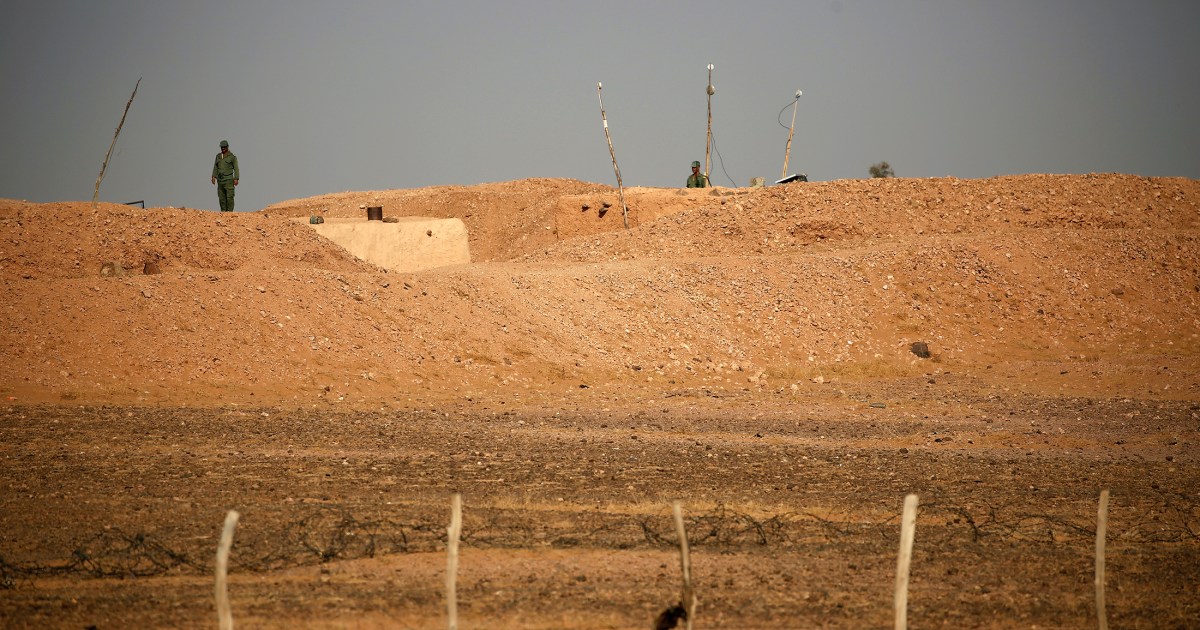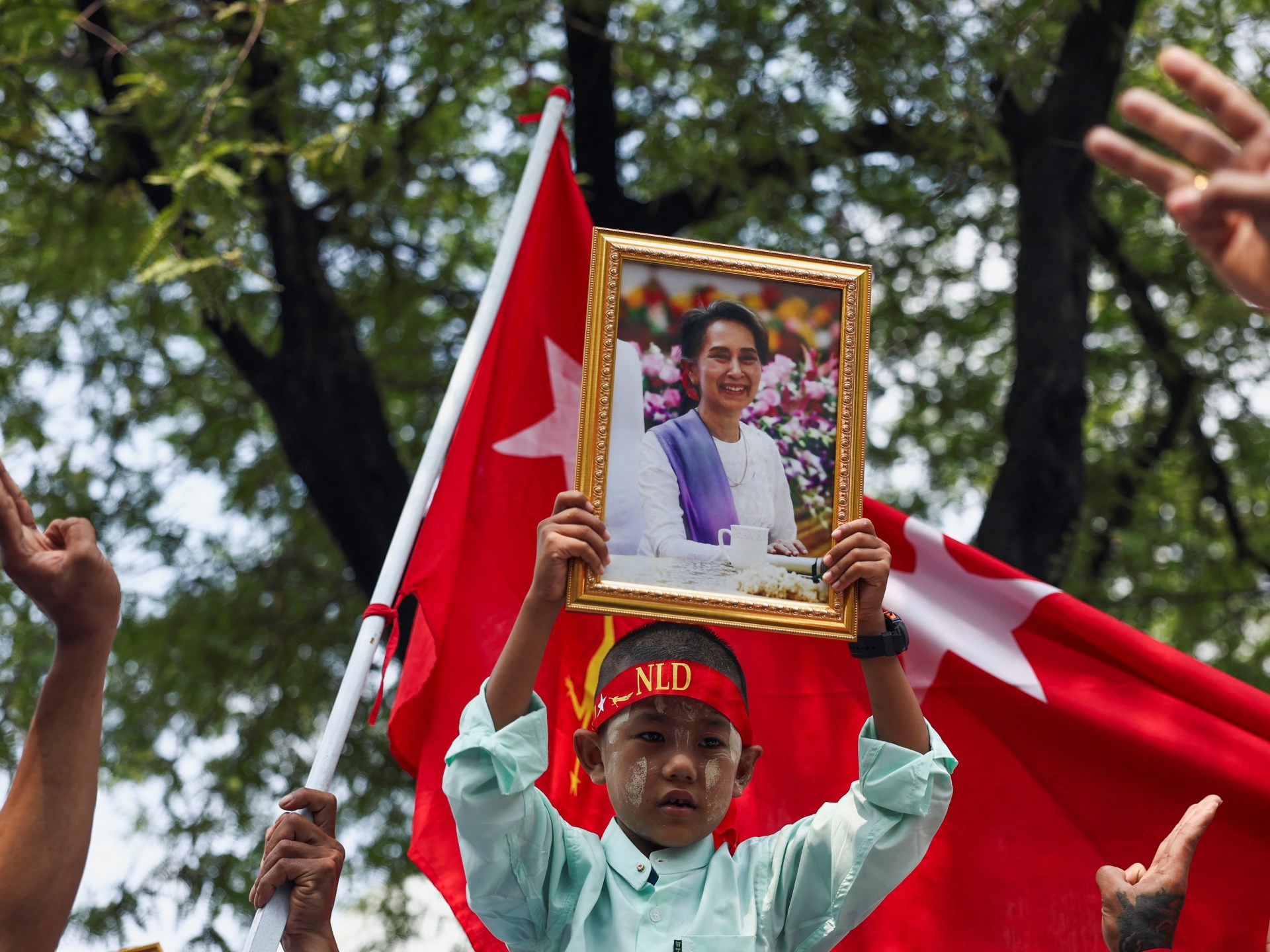ISIS attack kills two and injures six in Israel as Arab and Israeli officials hold historic summit
The attack — the second of its kind in a week — coincided with a landmark regional summit in Israel’s Negev desert, where top diplomats from the United Arab Emirates, Bahrain, Morocco, Egypt, Israel and the United States are meeting to discuss security issues.
ISIS has claimed responsibility for the attack, according to the SITE Intelligence Group, which quoted a post from the ISIS-affiliated Amaq news agency. Amaq posted a screengrab from a video that circulated on social media showing two masked men pledging allegiance to the leader of ISIS prior to the attack.
Amaq called the attack a “twin immersive commando attack by Islamic State Fighters,” according to SITE. The last time ISIS claimed responsibility for an attack in Israel was in June 2017.
The two assailants, who were shot and killed by Israeli police, were from the Arab-majority Israeli city of Umm al-Fahm in the northern district of Haifa. An Israeli police spokesperson said the operatives fired at local police in Hadera, killing two passers-by. Police said the victims were members of the border police force.
“A short while ago, two terrorists arrived on Herbert Samuel Street in Hadera and began firing at a local police force. As a result of the shooting, the deaths of 2 passers-by were determined,” the spokesperson said.
“An undercover force that was at the scene sought contact and after a brief gun battle neutralized the terrorists,” the spokesperson added.
The Hillel Yaffe Medical Center in Hadera said six people were injured in the attack, two of whom are in serious condition.
On Tuesday, an Arab-Israeli assailant killed four people in a stabbing attack in Israel’s southern city of Beersheba before he was fatally shot by a passer-by, according to Israeli police. The assailant had previously been arrested for supporting ISIS, according to the Israeli judiciary.
Separately, tensions have been rising between Palestinians and Israelis in Jerusalem and the West Bank, especially as the coinciding holidays of Ramadan, Passover and Easter approach. Last year, clashes and tensions in Jerusalem during this time period helped trigger the latest conflict with Hamas-led militants in Gaza.
In Jerusalem, there have been at least three stabbing attacks since the start of the month against Israelis, while in the West Bank, at least nine Palestinians, including several teenagers, have been shot and killed in clashes with Israeli forces in recent weeks.
A new Arab-Israeli ‘architecture’
At the conclusion of the two-day summit in the Negev desert Monday, the foreign ministers of the UAE, Bahrain, Morocco and Egypt issued a rare condemnation of the attack. The UAE, Bahrain and Morocco normalized ties with Israel less than two years ago under the US-brokered Abraham Accords. Egypt was the first Arab state to make peace with the Jewish state in 1979.
During the joint presser of the six top diplomats, Israeli Foreign Minister Yair Lapid touted a “new architecture” formed by Iran’s regional foes.
“This new architecture — the shared capabilities we are building — intimidates and deters our common enemies, first and foremost Iran and its proxies,” said Lapid.
Israel and some Arab countries are concerned about a potential nuclear deal with Iran bolstering its ability to build a nuclear weapon, and empowering Tehran-backed militants around the region. The US and its western allies defend the restoration of the 2015 deal — which would aim to curb Iran’s nuclear ambitions in exchange for sanctions relief — as the best way to boost regional and global security.
However Blinken offered Washington’s regional allies at the Negev summit reassurances. “As neighbors and, in the case of the United States, as friends, we will also work together to confront common security challenges and threats, including those from Iran and its proxies,” he said.
The new diplomatic relations have been met by protests from Palestinians. The Abraham Accords marked a departure from the long-held notion that Arab states would not normalize relations with Israel until a Palestinian state is established.
The United States, along with the Arab officials at the summit, say they want a two-state solution for Israel and the Palestinians. Negotiations on the issue stalled in 2014. The Palestinian Authority, which controls most of the West Bank, is unpopular, according to public opinion polls, while Israeli settlements — seen by most of the international community as illegal — have expanded. Meanwhile Gaza, another Palestinian territory, is ruled by hardline Islamists who have no formal relations with Israel or most of the Western world.
Leading a fragile cross-partisan coalition government, Israeli Prime Minister Naftali Bennett has said current conditions are not right for resuming diplomacy with the Palestinians. Bennett, himself from a nationalist right-wing party, has said publicly he opposes a two-state solution.
“Unless the occupation ends, Arab normalization meetings are nothing but an illusion and free reward for Israel,” Palestinian Prime Minister Mohammed Shtayyeh told his cabinet on Monday.
Jordan’s King Abdullah arrived in Ramallah on Monday for talks with Palestinian President Mahmoud Abbas, aimed at reducing regional tensions ahead of Ramadan.
“The region will never be graced with security and stability without a just and comprehensive solution to the Palestinian cause on the basis of a two-state solution which includes the establishment of a Palestinian state on the June 4, 1967, borders with east Jerusalem as its capital,” said Abdullah in the Ramallah meeting, referring to territory annexed by Israel during the 1967 war with Arab countries.



